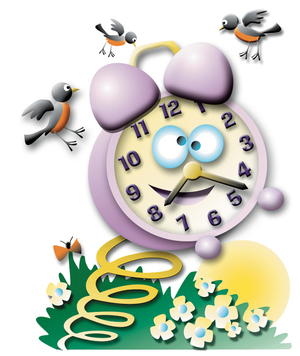
Helping Your Child Adjust to Daylight Savings
The clocks in the UK are springing forward by one hour at 1:00 am on Sunday, March 30th, 2025. While this means longer, brighter days to enjoy, it can also cause a bit of chaos when it comes to your child’s sleep routine.
Losing an hour of sleep might not bother us adults too much, but for babies and young children, it can throw everything off. They may not feel ready for sleep at bedtime, struggle to settle, and then be groggy and grumpy in the morning. Not ideal!
So, how can you make this transition as smooth as possible? Here are my top sleep tips to avoid bedtime battles and morning meltdowns when the clocks change.
Get Ahead of the Clock Change
A little preparation can go a long way in helping your child adjust. Try these simple steps in the week leading up to March 30th:
- Shift Bedtime Gradually – Move your child’s bedtime earlier by 15 minutes every couple of days. This slow adjustment helps their body clock adapt without too much resistance.
- Tweak Nap and Meal Times – Don’t forget to move naps and meal times forward too! Keeping everything in sync will make the bedtime shift feel more natural.
- Wake Them Up Earlier – Just as bedtime is getting earlier, so should wake-up time. Waking them 15 minutes earlier each morning will help get their body used to the new schedule.
Creating a Calm, Sleepy Bedtime Routine
A familiar and soothing bedtime routine is your best friend when adjusting to the clock change-
Here’s what works well:
- Wind Down Time – About an hour before bed, start slowing things down with a calming activity like reading, puzzles, or gentle play.
- Bath Time – A warm bath can help signal that bedtime is coming, but keep it calm and relaxing – think spa, not splash zone!
- Dim the Lights – Lowering the lights in the evening encourages the production of melatonin, the sleepy hormone. If you use a nightlight, go for a red or amber glow rather than a bright white one.
- Story and Cuddles – A bedtime story and a snuggle are the perfect way to settle your little one before tucking them in.
- Click here for more details on bedtime routines.
Helping Them Wake Up Happy
Mornings can be tricky after a clock change, so getting plenty of natural light early in the day is key:
- Open the Curtains – Let the daylight flood in as soon as possible to help reset their body clock.
- Have Breakfast in a Bright Spot – Eating in a well-lit area helps send the signal that it’s morning time.
- Get Outside – A bit of fresh air and daylight first thing can work wonders for adjusting to the new wake-up time.
What If Your Child Is an Early Riser?
If your little one is a 5:00 am wake-up specialist, the clock change might actually work in your favour! Their usual 5:00 am start will suddenly become 6:00 am, meaning you might get a bit of a lie-in – a rare parenting win!
Enjoy the Longer Days!
Once the initial adjustment is out of the way, you can make the most of the lighter evenings. Getting outside for a bit of play before bed can help your child use up some energy and settle down more easily at night.
With a bit of planning and a consistent routine, your little one will be back on track in no time – and you can all enjoy the sunnier days ahead.
Written by Mandy Gurney, RGN RM DIPHV
Founder of Millpond Children’s Sleep Clinic
Updated March 2025


